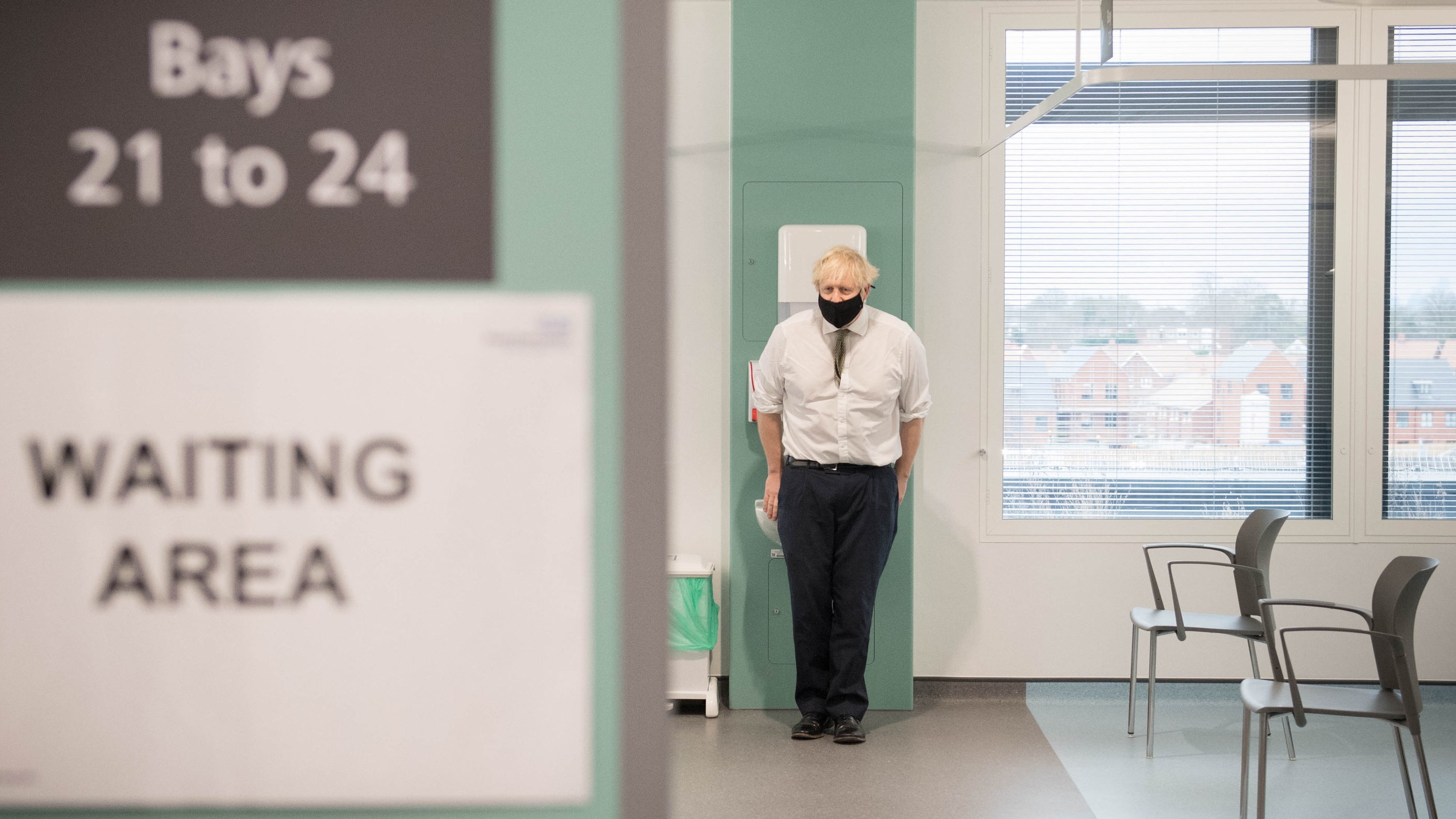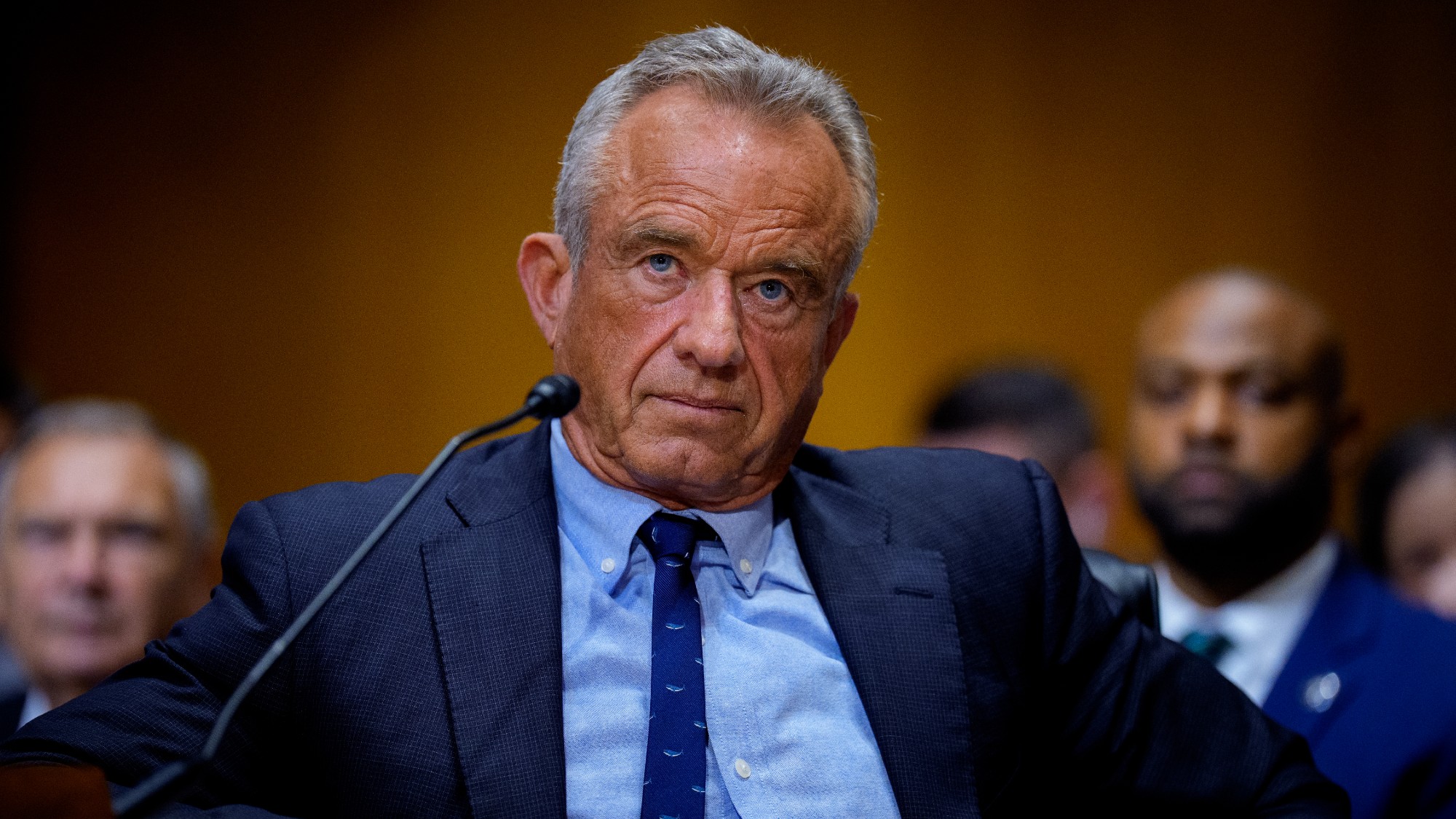Coronavirus: do mass vaccinations mean UK is ‘seven weeks from safety’?
Boris Johnson says Britain’s third national lockdown will be the ‘final phase of the struggle’ against the Covid-19 pandemic

A free daily email with the biggest news stories of the day – and the best features from TheWeek.com
You are now subscribed
Your newsletter sign-up was successful
People may have woken up this morning with a sense of deja vu after Boris Johnson announced another national lockdown last night in a bid to curb spiralling Covid infection rates.
But while the prime minister warned that the weeks ahead “will be the hardest yet”, he insisted that the third shutdown was “the last phase of the struggle”, thanks to the country’s mass vaccination programme.
“With every jab that goes into our arms, we are tilting the odds against Covid and in favour of the British people,” Johnson said during a televised address.
The Week
Escape your echo chamber. Get the facts behind the news, plus analysis from multiple perspectives.

Sign up for The Week's Free Newsletters
From our morning news briefing to a weekly Good News Newsletter, get the best of The Week delivered directly to your inbox.
From our morning news briefing to a weekly Good News Newsletter, get the best of The Week delivered directly to your inbox.
The PM has pledged that between 13 million and 14 million people will be vaccinated before the lockdown is lifted in mid-February.
Seven weeks from safety?
The decision to reintroduce the strongest possible restrictions followed “a frantic day of last-minute decision-making in Downing Street”, as questions were raised over “whether No. 10 should have introduced tougher measures sooner”, says Politico London Playbook’s Alex Wickham.
Tory ministers and backbenchers - many of whom had voiced opposition to further lockdowns - were “apoplectic” at how the situation has been allowed to develop, Wickham continues. But that anger may be tempered if “ministers can meet their genuinely make-or-break commitment to vaccinate 13 million of the most vulnerable people”.
A free daily email with the biggest news stories of the day – and the best features from TheWeek.com
In a bid to regain the initiative, Downing Street sent Cabinet Secretary Michael Gove out to bat for the new lockdown this morning.
He told BBC Radio 4’s Today programme that the government wanted a “vaccination centre on every high street”. And the PM has scheduled the lockdown to last for seven weeks “to allow the vaccination programme to be rolled out for 13 to 14 million people”, Gove added.
But anti-lockdown MPs might have been worried when Gove said he hoped his boss “is not overpromising”. As The Guardian notes, he “admitted it was unlikely all 14 million would receive the vaccine in time, while hinting that restrictions would remain in place until they did”.
Lockdown 3.0
While many of Johnson’s MPs are furious about the lockdown announcement, the PM does appear to have the public’s support - to some extent, at least. A snap Savanta/ComRes poll found that 79% of Brits back the shutdown.
However, 62% feel the government moved too slowly.
As The Atlantic’s Tom McTague writes, heading into a third lockdown at such short notice suggests that “once again, Britain is failing”.
“Johnson’s alibi now is that he did learn the lessons of the first wave - he just got unlucky,” continues McTague, who notes that the Tory leader has blamed the sudden nationwide spike in infections on the emergence of a new Covid strain.
Although “this is, at least to some degree, true”, Johnson “has proved consistently slower to take action to suppress the virus than other leaders measures”, indicating that the PM “has learned only some of the lessons from his failures in the first wave”, McTague argues.
Despite such accusations, government health officials are bullish about the newly launched vaccination rollout. One insider told Politico’s London Playbook that “the vaccine is the way out of this”, adding: “This is a massive national effort for the country to rally around.”
All the same, “the story of the next month is of two bleak battles against the clock”, says the news site’s Wickham.
Vaccine race
In his 8pm address to the nation yesterday, Johnson said that the coming weeks would see a focus on vaccinating those most at risk, starting with care-home residents and staff, front-line health and social care workers, all over-70s and the clinically extremely vulnerable.
These 13 million-odd people will get their first jabs by mid-February, paving the way to an end to full lockdown and a return to the tier system, the PM insisted.
The lockdown announcement came as the UK’s chief medical officers warned that hospitals in several areas of the country were at risk of being overwhelmed over the coming few weeks.
Johnson has “now bet the house on vaccines to save the day”, The Atlantic’s McTague writes. And if he pulls it off, the PM will “deserve some credit for backing the vaccine effort early with serious government money”.
But even if the UK is seven weeks from safety, “it will not erase the failures of Britain’s pandemic response”, McTague adds.
Joe Evans is the world news editor at TheWeek.co.uk. He joined the team in 2019 and held roles including deputy news editor and acting news editor before moving into his current position in early 2021. He is a regular panellist on The Week Unwrapped podcast, discussing politics and foreign affairs.
Before joining The Week, he worked as a freelance journalist covering the UK and Ireland for German newspapers and magazines. A series of features on Brexit and the Irish border got him nominated for the Hostwriter Prize in 2019. Prior to settling down in London, he lived and worked in Cambodia, where he ran communications for a non-governmental organisation and worked as a journalist covering Southeast Asia. He has a master’s degree in journalism from City, University of London, and before that studied English Literature at the University of Manchester.
-
 Political cartoons for February 19
Political cartoons for February 19Cartoons Thursday’s political cartoons include a suspicious package, a piece of the cake, and more
-
 The Gallivant: style and charm steps from Camber Sands
The Gallivant: style and charm steps from Camber SandsThe Week Recommends Nestled behind the dunes, this luxury hotel is a great place to hunker down and get cosy
-
 The President’s Cake: ‘sweet tragedy’ about a little girl on a baking mission in Iraq
The President’s Cake: ‘sweet tragedy’ about a little girl on a baking mission in IraqThe Week Recommends Charming debut from Hasan Hadi is filled with ‘vivid characters’
-
 Local elections 2026: where are they and who is expected to win?
Local elections 2026: where are they and who is expected to win?The Explainer Labour is braced for heavy losses and U-turn on postponing some council elections hasn’t helped the party’s prospects
-
 How are Democrats turning DOJ lemons into partisan lemonade?
How are Democrats turning DOJ lemons into partisan lemonade?TODAY’S BIG QUESTION As the Trump administration continues to try — and fail — at indicting its political enemies, Democratic lawmakers have begun seizing the moment for themselves
-
 How corrupt is the UK?
How corrupt is the UK?The Explainer Decline in standards ‘risks becoming a defining feature of our political culture’ as Britain falls to lowest ever score on global index
-
 How did ‘wine moms’ become the face of anti-ICE protests?
How did ‘wine moms’ become the face of anti-ICE protests?Today’s Big Question Women lead the resistance to Trump’s deportations
-
 How are Democrats trying to reform ICE?
How are Democrats trying to reform ICE?Today’s Big Question Democratic leadership has put forth several demands for the agency
-
 Why is Tulsi Gabbard trying to relitigate the 2020 election now?
Why is Tulsi Gabbard trying to relitigate the 2020 election now?Today's Big Question Trump has never conceded his loss that year
-
 Childhood vaccines: RFK Jr. escalates his war
Childhood vaccines: RFK Jr. escalates his warFeature The health secretary cut the number of recommended childhood vaccines from 17 to 11
-
 Will Democrats impeach Kristi Noem?
Will Democrats impeach Kristi Noem?Today’s Big Question Centrists, lefty activists also debate abolishing ICE